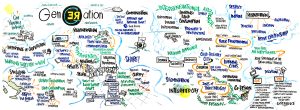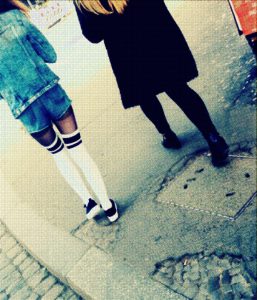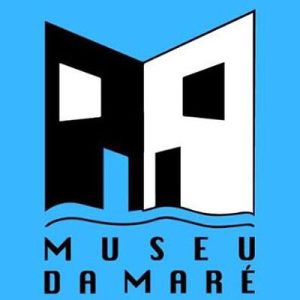Museu da Maré is a community project born out of the desire to preserve memory and identity in a context of poverty and social exclusion. We visited the museum and realised a set of interviews with their staff during the secondments for the CoCreation project in July 2018. The aim is to set a possible future collaboration for the Recentering Periphery project.

Photo from: www.brasildefato.com.br
The Maré Museum is an set of actions aimed at recording, preserving and disseminating the history of the Maré communities, in their various aspects, be they cultural, social or economic. The actions proposed in the Museological Plan include an institutional program, collections, exhibition, cultural education, research and dissemination of the initiative.
Historic group of Maré.
The Museu da Maré involves several nuclei of action that have as their center the permanent exhibition, but that unfold in other actions as the organization of documentary collections; conducting oral history research; the development of ludic and educational activities, such as the storytelling group; and other diverse events like itinerant exhibitions, seminars, workshops and the production of thematic material.
The projects developed by the program aim to favor the creation of channels that strengthen the community bonds between the residents, oriented mainly by the historical and cultural identity.From website: http://www.museudamare.org.br

Maré, periphery north of Rio de Janeiro, is a favela with 130.000 inhabitants stacked on 10 sq.km. In 2016 with the incoming World Championship and Olympics the favela must be hidden from the sight of curious visitors crossing the city to attend the sport events. Currently Maré favela is on all news. After the barbaric homicide of Mariella Franco, grown in Maré, feminist, civil right activist, municipal counsellor, who denounced the daily violent repressive actions of the police against the inhabitants of the favelas, the paramilitary groups have struck in the attempt to sedate demonstration in her favour and take back control on the favela.
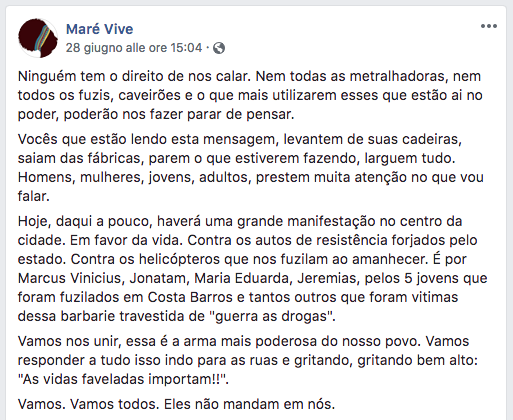
No one has the right to shut us up. All machine guns, all rifles, skull holes, and whatever else they use in power, cannot make us stop thinking. You who are reading this message, get up from your chairs, leave the factories, stop what you are doing, drop everything. Men, women, young people, adults, pay close attention to what I’m going to say. Today, soon there will be a big demonstration in the city center. In favour of life. Against the state-forged resistance cars. Against the helicopters that shoot us at dawn. It is for Marcus Vinicius, Jonatam, Maria Eduarda, Jeremias, for the 5 young people who were shot in Costa Barros and many others who were victims of this barbarism transvestite of “drug war”. Let’s unite, this is the most powerful weapon of our people. Let’s answer it all by going to the streets and shouting, shouting out loud: “Favela lives matter !!”.
Let’s go. Let’s all go. They do not rule us.
From facebook: https://www.facebook.com/Marevive
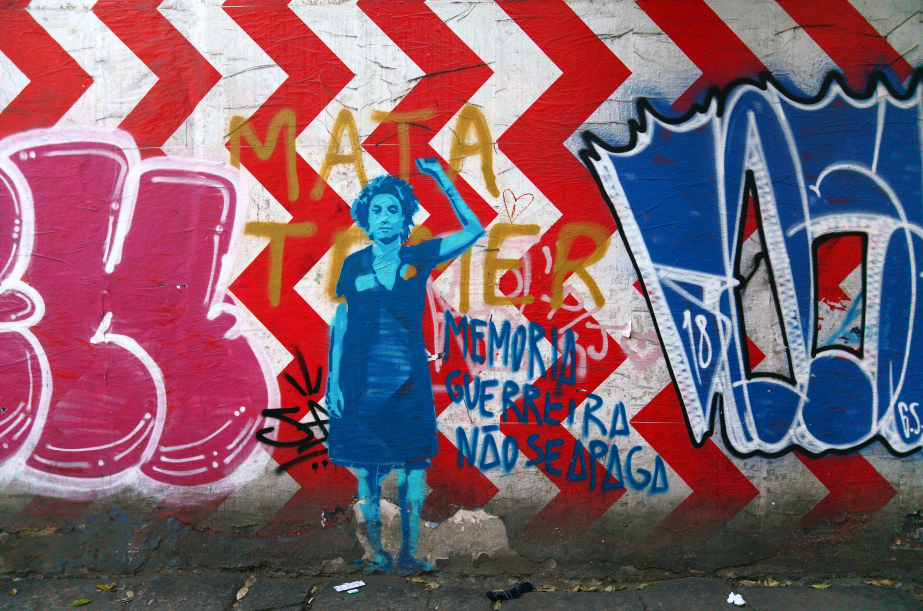
Marielle Franco
These days it is very difficult to enter in Maré, nor in the museum; there are military blockades, police shots from helicopters, the number of dead in the street increases. But the memory and activism of Marielle is alive and present, it is the ransom symbol of a people through denounce and construction of a collective memory. This museum is an example of that, it is a fragile political act, in bad financial conditions and at risk of closure. It is possible to make a donation from the website.
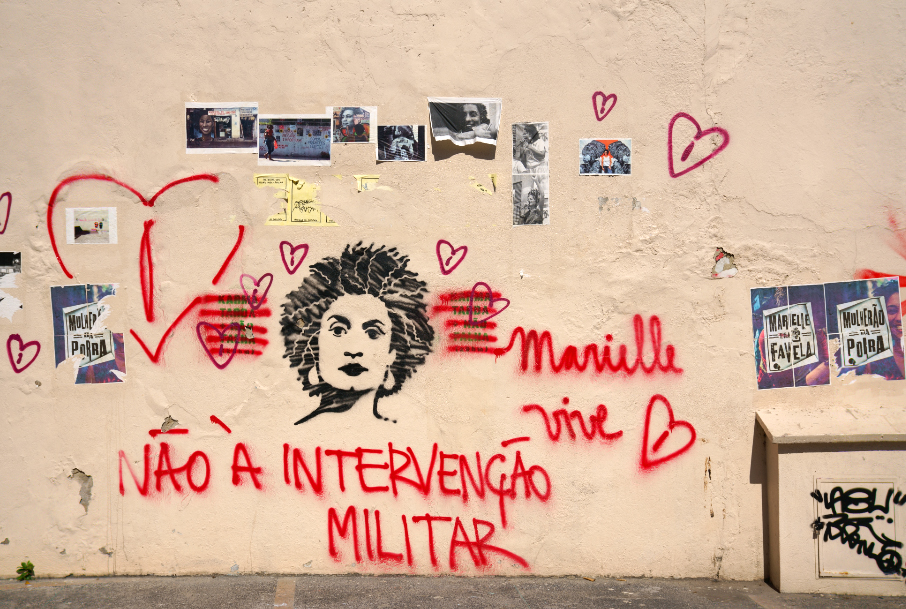
Marielle lives! No to military intervention!
